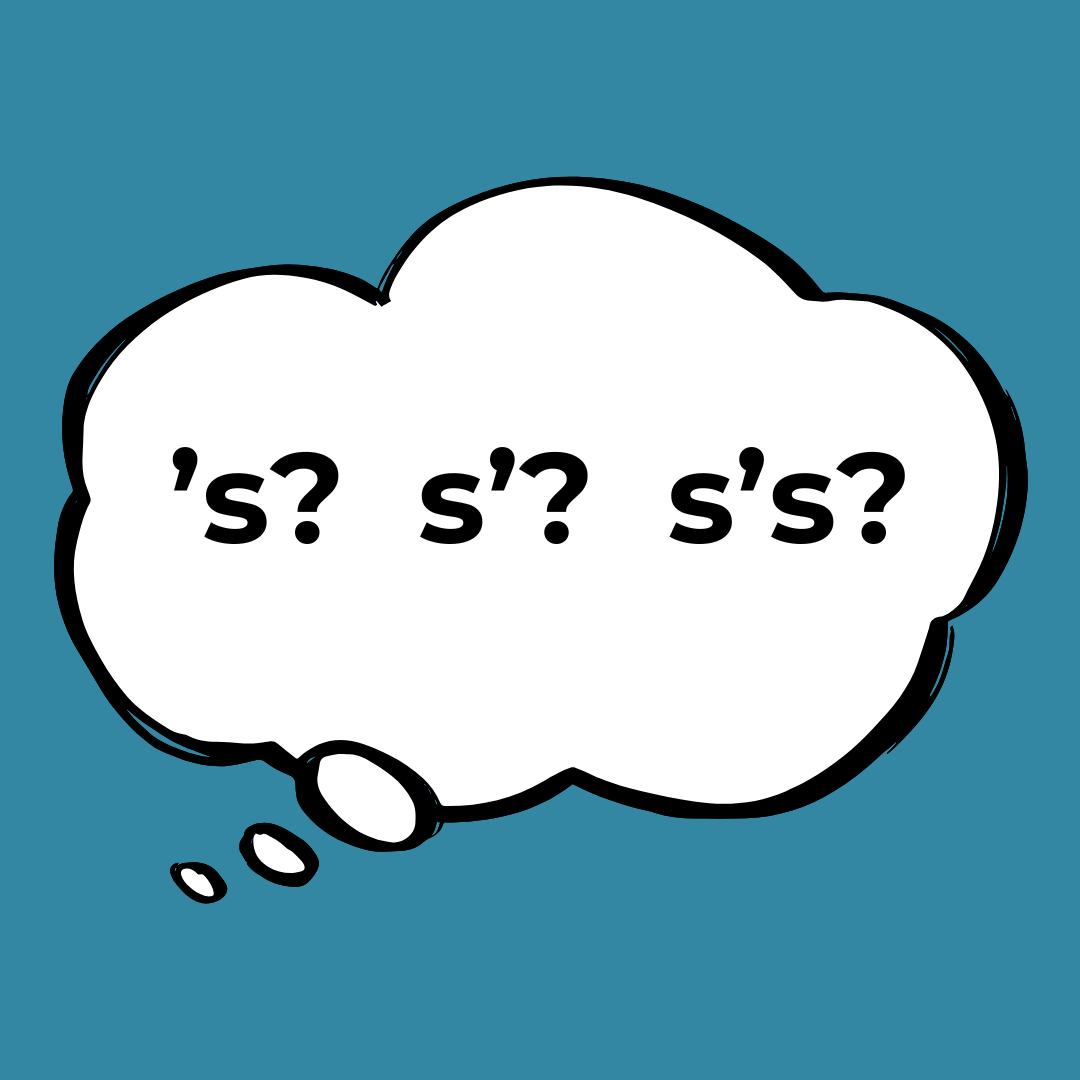My most popular post on LinkedIn and Facebook this week was about the use of apostrophes with names.
Whenever I post something like “At school you learnt … but …”, this always causes a reaction and starts a conversation!
But before we get to that part, let me give you a quick reminder of the basic rules for apostrophes. You can skip the first bit if you already know it.
The basics
When something or somebody belongs to somebody, we usually show this with ’s.
For example:
This is Katie’s house. (the house which belongs to Katie)
How is John’s father? (the father of John)
What’s your friend’s name? (the name of your friend)
We mostly use this for people but it can also be used for:
groups of people - the government’s policies
animals - the cat’s tail
places - London’s streets
time words - yesterday’s news
Plurals
With plural nouns ending in -s, we put an apostrophe after the -s and we don’t add another S. So:
the girl’s books - if it’s one girl
the girls’ books - if it’s more than one girl
With irregular plurals which don’t end in -s, we do add an S.
the children’s books
the women’s toilets
Names
Now this is where it gets difficult and this is what I posted about on LinkedIn and Facebook.
Which do you think is correct?
Kamala Harris’ husband
or
Kamala Harris’s husband?
When I was at school (a long time ago!!) I’m fairly sure we were taught that you don’t put another “s” after the apostrophe when a name ends in -s.
But, as I say, that was quite a long time ago and languages evolve! In the UK, people don’t really follow that rule any more. It’s old-fashioned.
I read a great article about this in The Guardian a few months ago and somebody was quoted as saying we should simply write what we say. “If you say the s, spell the s.” I like that!
I would say two “s” sounds so I would write “Harris’s”.
I should say at this point that not all English speakers agree on this. In fact, both spellings - Harris’ and Harris’s - are possible. I prefer Harris’s.
Here’s another example:
Prince William is King Charles’s son.
Again, I’ve written it how I would say it, with two “s” sounds.
But there are times when I wouldn’t write the extra -s. For example:
Mr Roberts’ car (= the car of Mr Roberts)
Moses’ brother
Socrates’ theory
If you try to say it with an extra “s”, it sounds a bit silly. So again, I would just write it as I say it.
With Jesus, I could go either way: both “Jesus’ disciples” and “Jesus’s disciples” look and sound OK to me. (If you read my post, you might notice I’ve changed my mind about this one! This proves what I’m trying to say - that there isn’t always a clear answer.)
Finally, if a name ends in a silent -s, I would add ’s:
Alexandre Dumas’s novels
That would be consistent with the rest of my approach but “Dumas’ novels” is also possible.
So what did you learn at school and which do you think is more correct?
As I mentioned, people sometimes disagree with me when I post things like this! Some people even get upset or annoyed with me! That’s OK but here are a few things to think about:
You’re entitled to your opinion, of course, and so am I! You can disagree with me (preferably politely) and ask me questions any time.
However, I’m British and I know what British people write and say. (I have a pretty good idea about American English too because I read American novels and watch American TV.) Nobody knows absolutely everything of course and we all make mistakes, but I find it a bit strange when non-native speakers tell me I’m wrong about my own language.
Languages change and many things I learnt at school have changed. If you go back further in time and look at Shakespeare’s English, for example, you’ll see how true this is, so it’s also possible that things have changed in your lifetime or mine.
A lot of things are 100% right or wrong when it comes to spelling, punctuation and grammar, but there are a few things where different people have different opinions, or where there are two options which are both correct. When you’re learning a language, it’s important to get comfortable with the idea that there isn’t always a simple answer.
There are different style guides, especially for people who write for newspapers, legal documents, academic journals and so on, such as The BBC News Style Guide and The Chicago Manual of Style. The reason these exist is because language is complicated and there isn’t always one correct answer. If you’re writing for a particular publication, you might have to follow their style guide but the rest of the time, there are a few things where you can make your own decisions.
I hope you found this helpful!
See you next week,
Katie





I think my instinct would be to write "Dumas' novel," but I see where you are coming from on the basis of consistency. It's awesome to get your insight as a British English instructor. I'm from the States but I live in Argentina, and most English students prepare for the Oxford Test of English and study British English intensively. Thank you for sharing! ❤️
I want to learn English